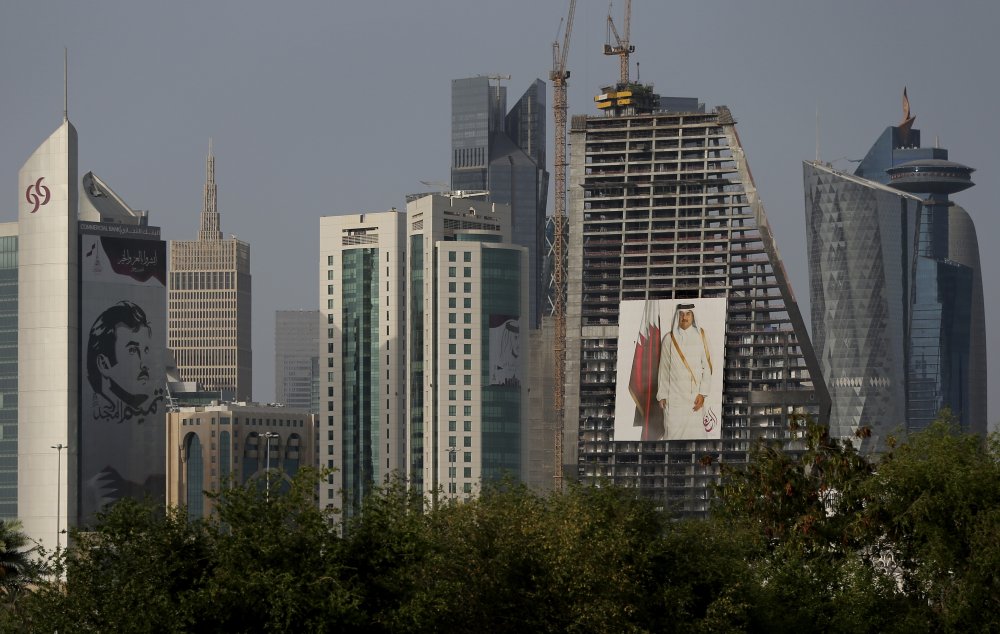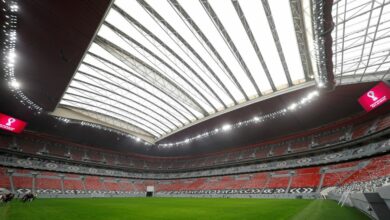Qatar will maneuver around the Egyptian government’s shutdown of Al-Jazeera, media experts say, by launching its first satellite “Suhail 1” in a bid to reaffirm its place in Arab media.
Some media experts, critical of Qatari policies, have argued the move is an attempt to “fight Egypt politically,” as opposition and other channels accused of supporting the Muslim Brotherhood will likely begin to use services of the Qatari satellite as well. Others argued that due to deep pockets of the Qatari government, Suhail 1 will have an unfair advantage over the Egyptian satellite Nilesat.
“Launching the Qatari satellite would have a negative impact on the Egyptian satellite. Its effect will appear after at least two years depending on the mode of operation and its integration with other satellites,” said Osama Heikal, former Information Minister and board member of Nilesat.
“Qatar wants to control the Arab region through media, which is the mouthpiece of the people, and therefore launched this satellite which could attract some countries by giving them financial privileges,” he added.
“This satellite will open the way for Qatar to fight Egypt politically and the biggest proof is that Al-Jazeer Misr Mubasher has been banned in Egypt.”
Heikal was critical of Al-Jazeera as well as the new satellite. “We noticed recently that Al-Jazeera takes news from the Egyptian television without permission and display them any way it wants,” he said. “When the Qatari satellite enters the same orbit, we must recognize a real contender… Its goal is political and our goal is providing a service.”
Hassan Hamed, head of Media Production City, warned the Egyptian government of the size of losses that may be caused by the launch of the satellite Suhail 1. He called on the government to pay the debts of the Radio and Television Union and all state bodies that cooperate with the city and Nilesat so they could survive and continue.
Hamed argued that Qatar will use all means, whether moral or immoral, far from professional standards and will offer huge financial privileges to attract customers. Hamed expects that Suhail 1 will offer deals so attractive that customers will find it challenging to resist, such as services free of charge and free frequencies for some time. He asserted that the Nilesat will have to firmly face a difficult and unfair challenge.
The Media Production City will not be affected by Suhail 1 because it is an intermediary between customers and the management of the Nilesat, Hamed said.
The Nilesat is a satellite that has historically held a large base of fans and customers, as well as the highest percentage of viewers in the Arab region, Hamed said. Hamed expressed hope that the Nilesat will be able to preserve the glory it has built over years.
Osama al-Sheikh, Mubrarak-era president of the Radio and Television Union, denied the possibility that Suhail 1 would affect the Nilesat. Sheikh said the Nilesat is an old firm that enjoys good relations with all its customers and has an audience of millions.
Any channel will think a thousand times before moving to another satellite so as not to lose its audience, he added.
He pointed out that any government-linked media project has political goals. Qatar launched Suhail 1 as a defensive step because there are many satellites and channels that rejected to deal with Qatar. Many opposition channels in Egypt and other countries will resort to Qatar's satellite, Sheikh said.
Ali bin Ahmed al-Kuwari, CEO of Qatar Satellites Company, said, “The (Suhail 1) satellite will enhance communications services, Internet and television broadcasts so as to reach remote locations. The priority of broadcast will be to Qatar's official TV and Al-Jazeera network channels.”
Kuwairi said in a press release that Suhail 1 has the ability to counter jamming on its signals and its operators can locate on the spot where the jamming was emanating from.
Safwat al-Alem, professor of media at Cairo University, said that there is a strong competition now between satellites in the whole world and that the launch of Qatar’s Suhail 1 will not have a direct impact on the media in Egypt, adding that Egypt benefits from media professionals whether in state-owned or private channels as long as it respects the will of audience and upholds professional standards.
He directed a message to the Nilesat management to focus on professionalism and marketing, not just financial returns.
Laila Abdel Meguid, Dean of the Faculty of Information at the Canadian University of Al-Ahram, said the Nilesat will be affected certainly Suhail 1, especially that most of the frequencies on the Egyptian satellite are busy, which will force many channels to resort to Suhail 1. She pointed out the competition would be strong.
The Nilesat management has to address its shortcomings and improve its services to maintain or even increase the size of clients and customers. Abdel meguid said, pointing out that the issue needs a study to develop restructuring plan.
A Nilesat management source said the Egyptian satellite will not be affected by the Suhail 1, especially as the capacity of the Qatari satellite will br less than 200 channels, including 12 Qatari state channel.
Moving from one satellite to another costs a channel great losses, so channels moving from Nilesat to Suhail 1 is unexpected, especially that the Nilesat enjoys great popularity in the Arab world, the source added.
The source expressed fear of the consequences of the ruling which ordered Al-Jazeera channels be banned on Nilesat. The source said Al-Jazeera, which monopolizes all international and continental sporting events, will move to Suhail 1, taking all football and sports audience.
Media expert, Yasser Abdel Aziz, said Suhail 1’s strength lies in its high technology.
Abdel Aziz said Suhail 1 is one of the most advanced satellites in the world.
He pointed out that beside its high technology, Qatar has a financial ability that enables it to set long-term investment goals by giving competitive rates for subscribers compared to other satellites, thus putting pressure on both Nilesat and Arabsat.
Media expert Mahmoud Sultan said lauching Suhail 1 at this critical time could be a coincidence, because the launch of a new satellite takes time.
He added Egypt will need to develop a code of honor and re-assess its media personnel to maintain a certain level of professionalism.
Edited translation from Al-Masry Al-Youm




